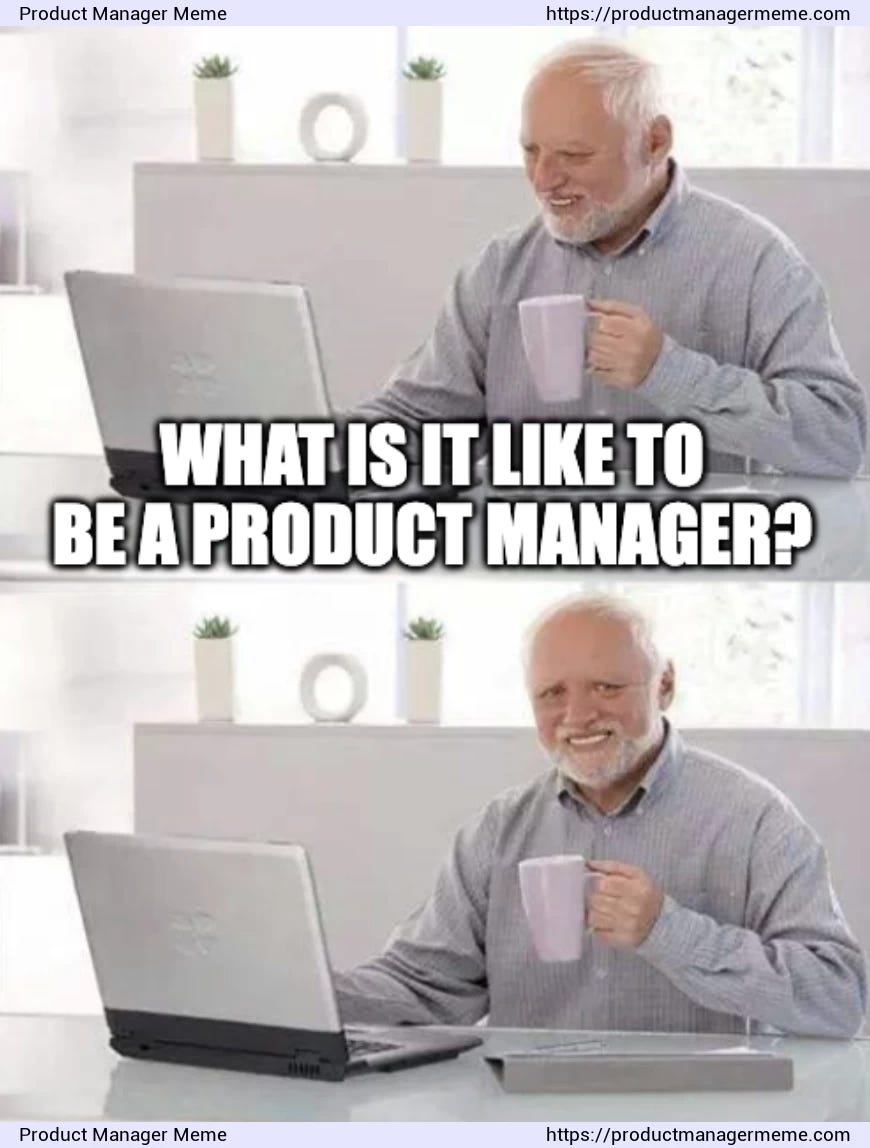The True Work of a PM: Beyond JIRA Tickets and Status Updates
My recent LinkedIn post sparked a conversation about the true work of a product manager. As a PM, you deal with many tasks and terms: Jira tickets, planning roadmaps, managing stakeholders, and finding "product-market fit." But with all the buzzwords and daily tasks, it's easy to forget the real purpose of our job.
So, let's delve into this topic, exploring what a PM is—and perhaps more importantly, what a PM is not—and how we can refocus on the core aspects of our work.
While different companies and industries may have varying expectations, certain misconceptions about the PM role persist. Let's clear the air:
PMs are not Glorified Babysitters: We sometimes joke that we are. While collaboration and team building are essential, our responsibilities go far beyond managing interpersonal dynamics. We are not responsible for micromanaging every detail or shielding our team from all challenges.
PMs are not Ticket Loggers: Project management tools like Jira, Azure DevOps, ClickUp, etc are invaluable for tracking tasks, but they should not become our primary focus. Getting lost in a sea of tickets can distract us from the strategic vision.
PMs are not Feature Factory Managers: Building features for the sake of building features is a surefire way to create a bloated and unfocused product. We are not simply order-takers, but rather problem-solvers who prioritize solutions that deliver real value.
So what are we? At the heart of our profession lies the responsibility to:
Define the Product: Be the architects of the product's future, creating a compelling vision that connects with user needs and business objectives.
Orchestrate Success: Be the conductors of a diverse orchestra, bringing together cross-functional teams to execute the product.
Drive User Adoption, Retention, and Satisfaction: Be the champions of the user, constantly seeking to understand their needs, solve their problems, and deliver a product they love.
Deliver Business Impact: Be the stewards of the company's investment in the product, ensuring it generates measurable value and contributes to overall success.
To excel as a PM, certain skills are indispensable:
Critical Thinking: The ability to analyze problems, evaluate options, and make sound decisions is crucial.
Empathy: Understanding user needs and pain points is fundamental to building products that people love.
Communication: Effectively communicating the product vision, strategy, and progress to stakeholders is key to building buy-in and support.
In addition to skills, certain traits set exceptional product managers apart:
Openness: Embracing new ideas, feedback, and challenges with a willingness to learn and adapt.
Caring: A genuine passion for the product, the users, and the team's success.
High Agency: A proactive mindset that takes initiative, overcomes obstacles, and drives results.
If you've been doing more of what a PM is not than what a PM is, you might ask how to change.
It starts with you acknowledging the true work of a PM. Without that, nothing can be achieved.
Next, find opportunities every day to DO real PM work. Don't make excuses that your company doesn't want you to do real PM work. Do it first and show positive results. With undeniable evidence, your company will have no choice but to support you. Avoid preconceived notions that your company won't change its attitude toward your work. If you don't show them, how will they know?
Finally, find allies who can help you advocate for what true PM work is all about. After all, you need people.
It's easy to get bogged down in the minutiae of daily tasks, but as a product manager, you must remember your true purpose: to create products that delight users and drive business value.
Move beyond ‘PM activities’ and primarily focus on the strategic, creative, and collaborative aspects that make your role so rewarding.



Great input on the responsibilities of a PM, Fumnaya! Getting lost in ticketing is a real deal.
Also, I do believe that PMs should work closely with Customer Success teams to shorten the feedback cycle and actually prioritize customer painpoints, whether by new features or solutions.
Again, the team ought to align with the management's goal for a Product. They could at least once ask stakeholders, what is the vision of thus product?